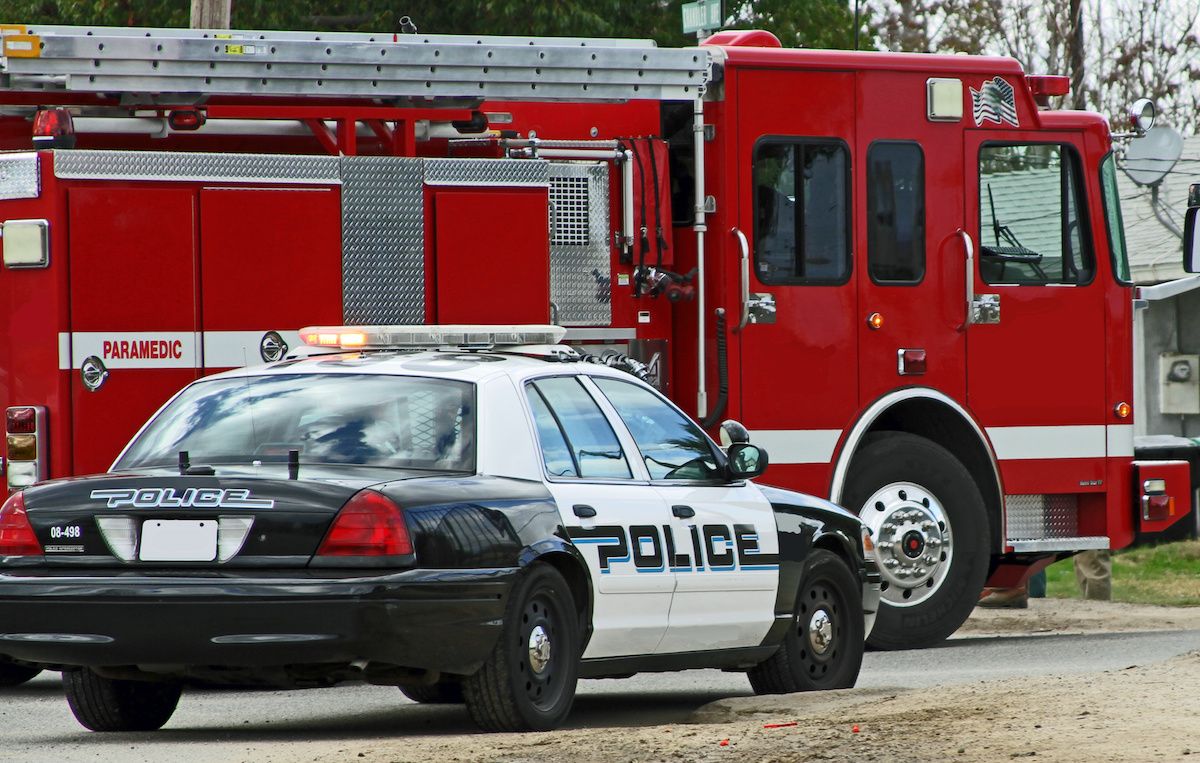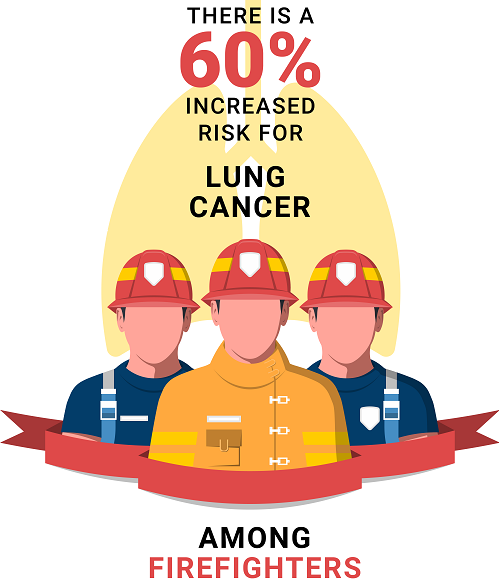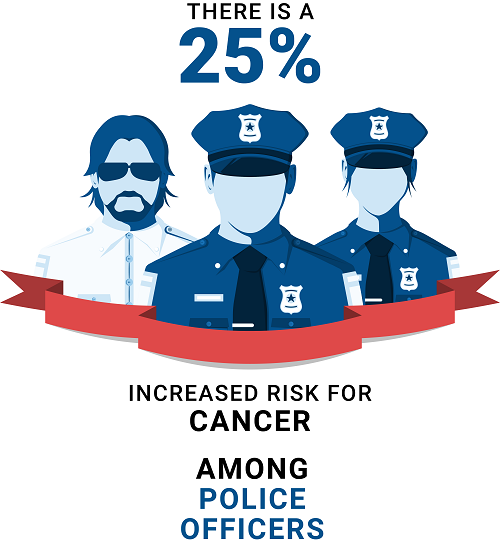First responders face unique occupational health risks.
In addition to chronic exposure to heat, smoke and toxic flame retardants, first responders are subjected to aerosolized chemicals like benzene, asbestos, polycyclic aromatic hydrocarbans (PAH), formaldehyde, diesel exhaust, and new building materials with undefined chemicals. These toxins are inhaled, ingested and absorbed through the skin, significantly increasing the risk for many cancers. The stress of the job compounds the risk of cancer, too.
How significant is the cancer risk?
First responders have higher rates of many cancer types, including bladder, brain, colon, leukemia, lymphoma, non-hodgkin lymphoma, lung, kidney, melanoma, multiple myeloma, prostate and testis. The longer you’re on the job, the greater your risk. Studies have found:
- A 60% increased risk for lung cancer among firefighters
- A 25% increased risk for cancer among police officers
- A six-fold increase in breast cancer among female firefighters
- After 20 years of service, firefighters had an increased risk of non-Hodgkin lymphoma, multiple myeloma and colon and kidney cancer.
- After 30 years of service, firefighters have an increased risk of leukemia, lymphoma and brain cancer.
- Smoking, on top of the occupational exposures of first responders, increases the risk of lung and smoking-related cancers.
In a Roswell Park study of 100 Buffalo firefighters from two firehouses, researchers found that even at fires with low smoke intensity (measured by air samples) firefighters were exposed to appreciable levels of toxic materials, including carbon monoxide, benzene, aldehydes and hydrogen cyanide.
The accumulation of this evidence has led to federal approval of the National Cancer Registry for Firefighters and additional laws in New York State supporting cancer treatment for both professional and volunteer firefighters.
Take charge of your health
If you are a first responder, cancer screenings and other early detection strategies are especially important. Roswell Park Comprehensive Cancer Center recommends all first responders undergo a comprehensive medical exam each year by their primary care physician at the physician’s office or healthcare facility. This is important because your personal healthcare provider collects data about your health behaviors and your family cancer and medical history and the stress you suffer on the job. Be sure to tell your provider that you are, or have been, a first responder and how many years you served. This yearly exam should include:
- Comprehensive physical assessment
- Laboratory testing including blood tests and urinalysis
- Pulmonary function test
- Imaging such as chest x-ray (every 5 years) or low dose CT if indicated
- Cancer screenings for early detection of prostate, cervical, colorectal, breast and lung cancer.
Roswell Park Comprehensive Cancer Center fully supports cancer screening and early detection for first responders with the belief that this will lead to better survival, more effective treatment options and improved quality of life for all first responders.
Roswell Park's mobile lung cancer screening program, Eddy, provides easy access to lung cancer screening to those most at risk for developing the disease. Learn more about our initiative to provide this quick and simple screening to our first responders.


